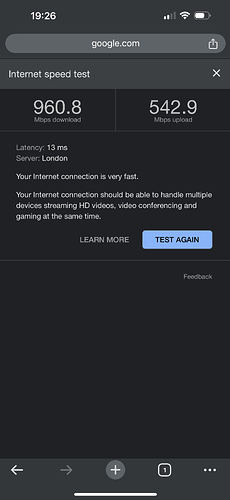While you’re partially right - QoS on consumer and prosumer routers is generally limited by the hardware - I have to disagree on not using QoS on a gigabit or faster connection, buffer bloat still exists and properly set-up QoS is very much worthwhile and noticeable, everything just feels snappier, to the extent people often ask what’s changed.
Its also invaluable if you’re trying to stay on a Teams call when your children come home and start downloading the latest Call of Duty update on both their PCs, at the same time…
It still has its place, but you just need to always be aware that its enabled.
I’m getting an A+ for the buffer bloat test, also had the same score with my 1gb symmetrical connection on my previous isp. No issues with voip calls, connecting to devices or anything even when downloading something at full speed at the same time although the router hardware plays a part there as well, a lesser spec router might have issues without some form of qos but I know of no router that can max out a 1gb connection with qos enabled which is why I always see the recommendation to turn it off with those connection speeds, unless the user is willing to accept some loss of speed.
Just ran a quick Speedtest on my iphone16 pro max and it’s quicker than before, but the WiFi on her Samsung 24 ultra was so bad at sub 14mb. Quick change of channels on the phone and only using the 2.4 we are hitting nearly 1000mb easily and that’s with 4 consoles/PC running in the background plus 2 TVs.
How are you hitting nearly a gig on 2.4Ghz ![]()
Must live on a remote island ![]()
